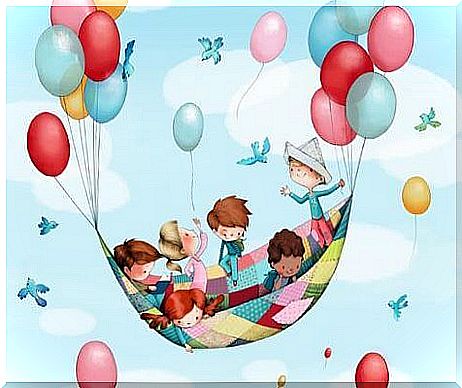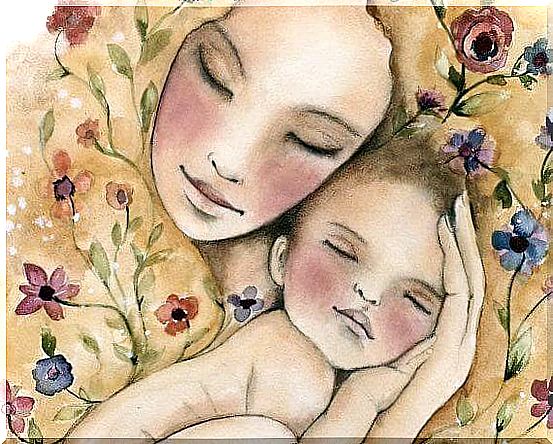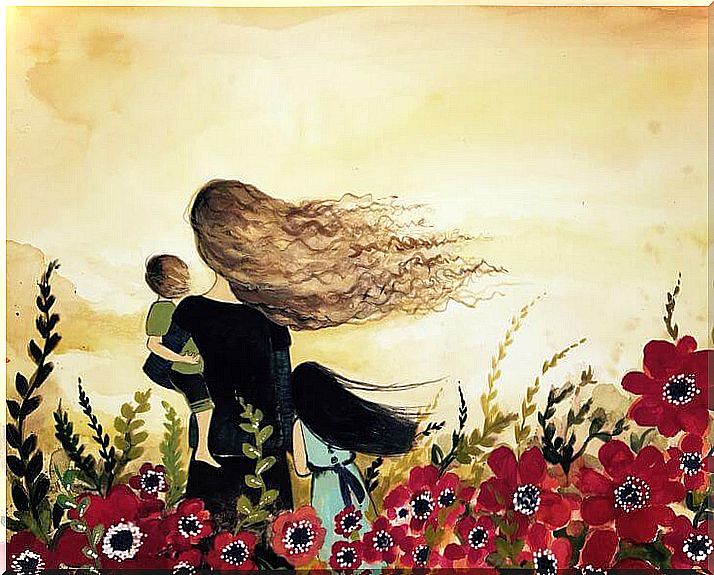He Listens With Enthusiasm To The Small When They Are Little, For Them It Is Important

Listen carefully to whatever children want to say to you, whatever it is, for them it is the most important thing. His amazement, his enthusiasm, his discovery, his feelings, his emotions, his thoughts, his achievements, his evolution.
There is a Catherine M. Wallace quote that should be burned into our skin: “listen carefully to whatever your children want to say to you, no matter what it is. If you don’t listen enthusiastically to the little things when they are little, they won’t tell you the big things when they are big. At the end of the day for them it will have always been about important things ”.
They express themselves with countless words, looks, gestures … Try to put your Smartphone or your tablet aside while they are playing and then you will see that they look at you hundreds of times seeking your approval, your complicity, your attention.

At mealtime, the most important news are those that children tell us
We are so used to “leaving for another time” what children tell us that we do not realize that
As insignificant as it may seem to a child, everything around him is magic ; However, we adults do not realize this because of the loss of the capacity for wonder, because we do not define ourselves by what we can enjoy but by what is useful to continue behaving like robots, like mechanisms with inflexible objectives.
Prisoners of the rush, we are not useful to our children, we do not offer them our help and company because we do not respect their moments and spaces, because we cannot tune in and be patient, guide them gently and without anger.

Listen to the child to talk to you, talk to him to listen to you
The way we talk to our children does matter, no doubt about it. If we speak to children from affection and strive to maintain understanding communication with them, we will gain potential growth that will allow us to speak and listen to each other correctly.
1. How we have to change the way we speak to them to facilitate the expression of feelings
As we have already pointed out on other occasions, there is a direct relationship between how a child feels and how he behaves. It’s a simple rule: if a child feels good, he behaves well. We are key in this process and we can help them achieve well-being. How? Accepting your feelings and trying not to send messages like:
-You are not tired, you are just a little sleepy.
-You have no reason to be so upset.
-You are not hot, do not take off your sweater.
It is key to a good evolutionary development that we tune in with our children and try to send these types of messages: “so you’re tired even though you’ve had a good nap”, “wow, I see you’ve had a hectic day today” , “I’m cold but I can see that it’s hot for you”, and so on.
In other words, it is about developing their empathic capacity through ours, allowing them to feel and validate their feelings and emotions. How? Paying attention to them, keeping an interest in what they tell us, working because they are considered and valued.

2. Praise, another pending issue
It is common for us to praise our children when they do things well. However, we must realize that the self-talk we foster is unhealthy.
3. When we want to get cooperation
When we want to obtain cooperation, we generally have to emit dictatorial messages. Many of us will recognize ourselves in:
-Don’t throw that away.
-Don’t eat with your fingers.
-Do not play with water.
-Do your homework.
-Wash your hands right now.
-Stop playing and let’s go to bed.
As a consequence, it is natural that the attitude of children ends up becoming a constant challenge, so they explicitly or implicitly convey to us what makes us so angry about “I will do whatever I want.” To this we will respond “you will do what I tell you”, escalating the conflict and damaging our relationship.
So again what we have to change is our discourse, try to stop blaming and accusing our little ones because they have soiled the floor or left marks on the glass. Likewise, everything that transmits qualifications (you are good, you are bad, you are handsome …) is good to be eliminated from our usual vocabulary. There are many healthier ways to praise.

Therefore, when we want to obtain cooperation and make the child understand that he can do better and the reasons for this, we can do the following:
– Describe what it looks like or the problem there is ( Instead of “How many times do I have to tell you to turn off the bathroom light” it is better to say “The bathroom light is on”)
– Give specific information about what is happening ( Instead of “Who drank milk and left the bottle outside?” It is better to say “Milk out of the fridge goes bad”)
– Ask them in a few words, in a simple, concise and positive way (Instead of “Stop playing and go to sleep” , it would be something like “Maria, the pajamas” ).
– Talk about their (and our) feelings. ( Instead of “You are the most annoying thing there is”, it is better to say “I do not like being yelled at to ask for things”).

Recommended Reading: “How to Talk for Children to Listen and How to Listen for Children to Talk” by Elaine Mazlish and Adele Faber.









